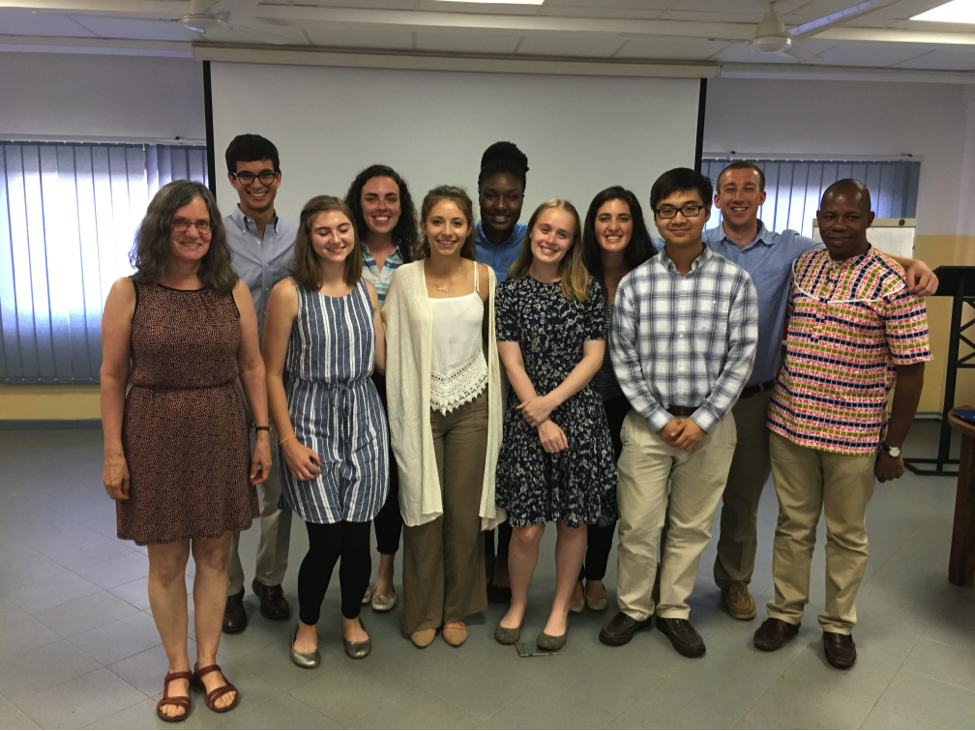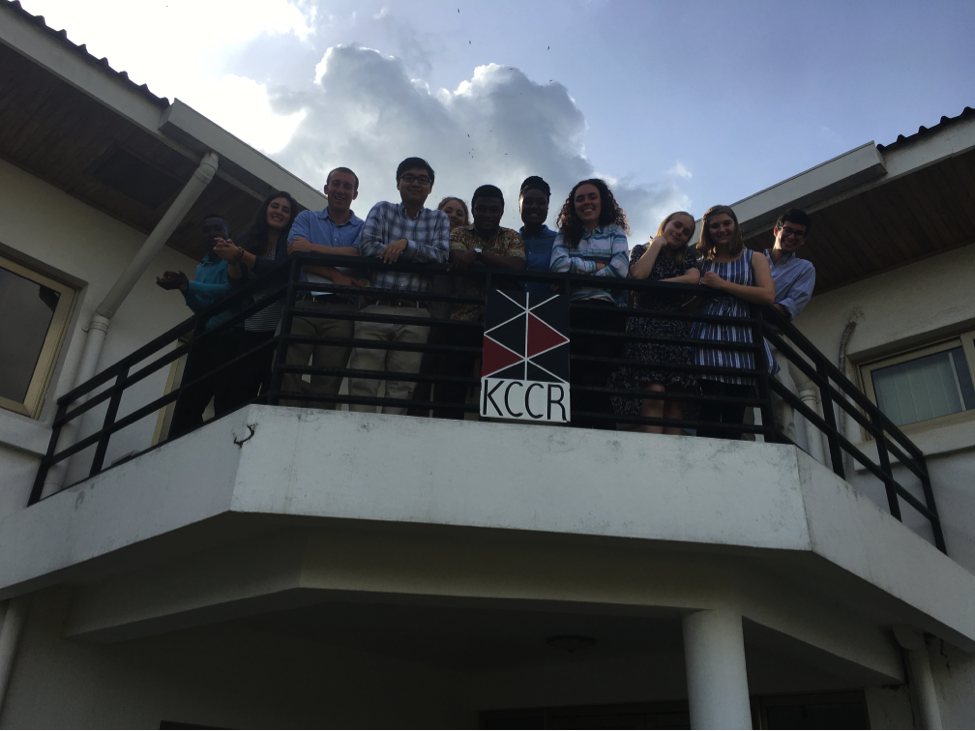by Kaila Helm, Biological Basis of Behavior ’20; Kathleen Givan, Bioengineering and Political Science ’20; Katharine Cocherl, Bioengineering ’20; Hope McMahon, Chemical and Biomolecular Engineering ’18; and Dave Pontoriero, Biotechnology MS ’18

David Issadore, a faculty member in the Department of Bioengineering at the University of Pennsylvania teaches an engineering course ENGR566 – Appropriate Point of Care Diagnostics. As part of this course, he and Miriam Wattenberger from CBE, have taken nine Penn students, most of them majoring in Bioengineering, to Kumasi, Ghana, to study the diagnosis of pediatric tuberculosis. While in Ghana, these students are blogging daily on their experiences.
Today was the day we had been anticipating since the start of our trip: Presentation Day! We presented our final projects to a room full of people from KCCR. Scientists and research assistants attended to hear more about the designs we had been working on all semester.
Our presentations were in the afternoon, so we used the morning to work out any last-minute details. Each group presented on its pediatric tuberculosis diagnostic, with each trying to come up with innovative devices that could be implemented in the future. Even more exciting, we had an opportunity to present our more short-term ideas for problems that undergraduate students could address themselves. Our prompt was to create a project idea that could be completed in one year by one to five undergraduates with low funding requirements. The question-and-answer session that followed our presentations provided a wonderful opportunity to be critical of our ideas and contemplate the limitations of our designs, while still posing new questions regarding what could or could not work in our proposed plans for implementation.

After a busy start to our day, we were eager to spend some time relaxing and reflecting on our academic experiences. We were amazed by the progress we made in the construction of our proposals. As engineers and individuals pursuing the STEM field we planned to create technology that could positively impact Ghana. Yet our presentations and the feedback we received were another source of evidence that we must continue to work on the ways in which our devices can be integrated into the Ghana’s current medical system. Nevertheless, we were proud to present all that we learned to such an insightful audience.
After a successful afternoon of presentations, we headed out to dinner to celebrate. We went to the same restaurant we went to two weeks previously. There was live music, dancing, and our new team favorite: grilled tilapia.
